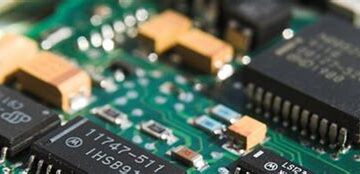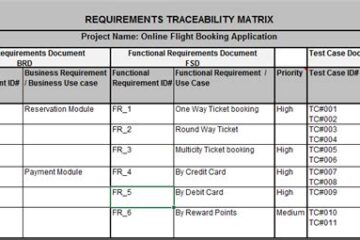Understanding ITAR and Its Relevance to PCB Manufacturing
The International Traffic in Arms Regulations (ITAR) is a set of regulations enforced by the U.S. Department of State to control the export and import of defense-related articles, services, and technologies. ITAR compliance is crucial for companies involved in the manufacturing of printed circuit boards (PCBs) that are used in military, defense, or aerospace applications.
What is ITAR?
ITAR was created to protect U.S. national security interests by preventing the unauthorized export of sensitive technologies and information to foreign countries or individuals. The regulations cover a wide range of items, including:
- Defense articles
- Technical data related to defense articles
- Defense services
Companies that manufacture, export, or broker defense-related items must comply with ITAR regulations to avoid penalties and maintain their ability to work on government contracts.
ITAR and PCB Manufacturing
PCBs are essential components in many military, defense, and aerospace systems. As such, PCB manufacturers must ensure ITAR compliance when producing boards for these applications. ITAR PCB manufacturing requires strict adherence to regulations governing the design, production, and handling of sensitive technology.
Key Aspects of ITAR Compliance in PCB Manufacturing
To maintain ITAR compliance, PCB manufacturers must focus on several key areas:
1. Registration with the U.S. Department of State
Companies engaged in ITAR-related activities must register with the Directorate of Defense Trade Controls (DDTC) at the U.S. Department of State. This registration must be renewed annually and requires the disclosure of information about the company’s ownership, management, and business activities.
2. Controlled Access to Technical Data
ITAR regulations require strict control over access to technical data related to defense articles. PCB manufacturers must implement measures to prevent unauthorized access to sensitive information, such as:
- Secure storage of technical data
- Access control systems
- Employee background checks
- Non-disclosure agreements
3. Manufacturing Process Control
ITAR PCB manufacturing requires strict control over the production process to ensure that sensitive technology is not compromised. This includes:
- Segregation of ITAR and non-ITAR production lines
- Controlled access to production areas
- Traceability of materials and components
- Secure disposal of scrap and waste materials
4. Supply Chain Management
PCB manufacturers must also ensure that their supply chain partners are ITAR compliant. This involves:
- Verifying the ITAR registration status of suppliers
- Obtaining end-user certificates for ITAR-controlled items
- Maintaining records of ITAR-related transactions
5. Training and Audits
To maintain ITAR compliance, PCB manufacturers must provide regular training to employees involved in ITAR-related activities. This training should cover:
- ITAR regulations and requirements
- Company policies and procedures related to ITAR compliance
- Consequences of non-compliance
Regular internal audits should also be conducted to identify and address any potential compliance issues.
Consequences of Non-Compliance
Failure to comply with ITAR regulations can result in severe penalties for companies and individuals, including:
- Civil fines of up to $500,000 per violation
- Criminal fines of up to $1,000,000 per violation
- Imprisonment of up to 10 years for individuals
- Debarment from government contracts
- Loss of export privileges

Best Practices for ITAR Compliance in PCB Manufacturing
To ensure ITAR compliance and minimize the risk of penalties, PCB manufacturers should adopt the following best practices:
1. Establish a Comprehensive Compliance Program
Develop and implement a comprehensive ITAR compliance program that covers all aspects of the company’s operations, including:
- Registration with the DDTC
- Access control to technical data
- Manufacturing process control
- Supply chain management
- Training and audits
2. Appoint a Compliance Officer
Designate a qualified individual to oversee the company’s ITAR compliance program. This person should have a thorough understanding of ITAR regulations and be responsible for:
- Developing and implementing compliance policies and procedures
- Conducting regular risk assessments
- Investigating potential violations
- Reporting to management and the DDTC as required
3. Conduct Regular Risk Assessments
Regularly assess the company’s ITAR compliance risks and identify areas for improvement. This may involve:
- Reviewing current policies and procedures
- Analyzing past compliance issues
- Evaluating changes in the regulatory environment
- Assessing the effectiveness of training programs
4. Foster a Culture of Compliance
Encourage a culture of compliance throughout the organization by:
- Communicating the importance of ITAR compliance to all employees
- Providing regular training and updates on ITAR regulations
- Recognizing and rewarding employees who demonstrate a commitment to compliance
- Promptly addressing any compliance concerns raised by employees
5. Collaborate with Industry Partners
Engage with industry partners, such as suppliers, customers, and industry associations, to share best practices and stay informed about developments in ITAR regulations. This collaboration can help PCB manufacturers stay ahead of compliance challenges and maintain a competitive edge in the market.
ITAR Compliance Checklist for PCB Manufacturers
To assist PCB manufacturers in assessing their ITAR compliance status, the following checklist can be used:
| Compliance Area | Checklist Item | Yes/No |
|---|---|---|
| Registration | Company registered with DDTC | |
| Registration renewed annually | ||
| Access Control | Secure storage of technical data | |
| Access control systems in place | ||
| Employee background checks conducted | ||
| Non-disclosure agreements signed | ||
| Manufacturing | ITAR and non-ITAR production lines segregated | |
| Controlled access to production areas | ||
| Material and component traceability maintained | ||
| Secure disposal of scrap and waste materials | ||
| Supply Chain | Supplier ITAR registration verified | |
| End-user certificates obtained | ||
| Records of ITAR-related transactions maintained | ||
| Training & Audits | Regular employee training conducted | |
| Internal audits performed |
By using this checklist, PCB manufacturers can identify areas where they may need to improve their ITAR compliance efforts and take corrective action as needed.
Frequently Asked Questions (FAQ)
-
Q: What is the difference between ITAR and EAR?
A: ITAR (International Traffic in Arms Regulations) is administered by the U.S. Department of State and covers defense-related articles, services, and technologies. EAR (Export Administration Regulations) is administered by the U.S. Department of Commerce and covers dual-use items that have both commercial and military applications. -
Q: Do all PCB manufacturers need to be ITAR compliant?
A: Not all PCB manufacturers need to be ITAR compliant. ITAR compliance is required only for companies that manufacture PCBs for military, defense, or aerospace applications that are covered under the U.S. Munitions List (USML). -
Q: Can a company be both ITAR and ISO certified?
A: Yes, a company can be both ITAR and ISO certified. In fact, many PCB manufacturers pursue both certifications to demonstrate their commitment to quality and compliance. -
Q: What is the process for obtaining ITAR registration?
A: To obtain ITAR registration, a company must submit an application to the Directorate of Defense Trade Controls (DDTC) at the U.S. Department of State. The application process involves disclosing information about the company’s ownership, management, and business activities, as well as paying a registration fee. -
Q: How often do ITAR regulations change?
A: ITAR regulations can change periodically based on updates to the USML or changes in U.S. foreign policy. It is important for PCB manufacturers to stay informed about any changes to ITAR regulations that may affect their operations and to update their compliance programs accordingly.
Conclusion
ITAR compliance is a critical consideration for PCB manufacturers that produce boards for military, defense, or aerospace applications. To maintain compliance and avoid penalties, companies must implement comprehensive compliance programs that cover all aspects of their operations, from registration and access control to manufacturing processes and supply chain management.
By adopting best practices, fostering a culture of compliance, and staying informed about changes in ITAR regulations, PCB manufacturers can minimize their compliance risks and maintain their ability to work on government contracts. Ultimately, ITAR compliance is not only a legal requirement but also a competitive advantage in the marketplace, demonstrating a company’s commitment to quality, security, and the protection of U.S. national interests.



0 Comments